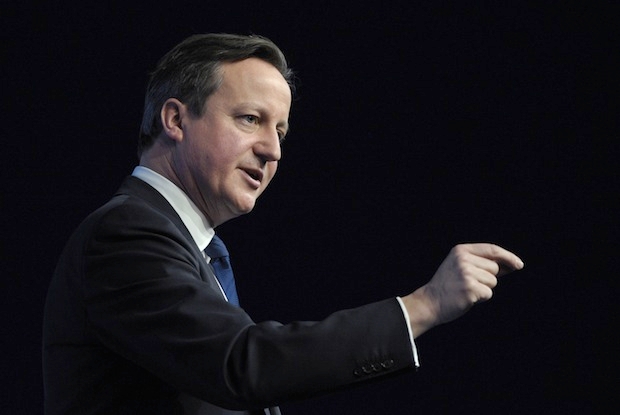David Cameron warns today that Britain must act against Isis in order to prevent terrorist attacks on this country. But what does he actually intend to do? In his article in the Sunday Telegraph, the Prime Minister argues that a ‘broader political, diplomatic and security response’ is needed, but also says that ‘we should avoid sending armies to fight or occupy’.
He writes:
‘Britain – our economy, our security, our future – must come first. After a deep and damaging recession, and our involvement in long and difficult conflicts in Iraq and Afghanistan, it is hardly surprising that so many people say to me when seeing the tragedies unfolding on their television screens: “Yes, let’s help with aid, but let’s not get any more involved.”
‘I agree that we should avoid sending armies to fight or occupy. But we need to recognise that the brighter future we long for requires a long-term plan for our security as well as for our economy. True security will only be achieved if we use all our resources – aid, diplomacy, our military prowess – to help bring about a more stable world. Today, when every nation is so immediately interconnected, we cannot turn a blind eye and assume that there will not be a cost for us if we do.’
So is he saying this country needs to do more militarily to combat Isis, or not?
He doesn’t specifically say that more needs to be done militarily, and interestingly when he lists ‘all our resources’, ‘military prowess’ comes last after aid and diplomacy. But Downing Street has already said the government is prepared to arm the Kurds, and the government could also look at co-operating with other groups over intelligence. Stepping up the fight without any boots on the ground could also include opportunities to advise local forces through special envoy roles and others.
Rather than making specific commitments, what the Prime Minister is really trying to do is make the case, and prepare the political ground, for the time when he does need to announce plans for more aid drops, or arming a group fighting Isis. He may not find in the coming months that he has habitually dovish types continually calling for further action, as we’ve seen over the past few weeks. He will also be aware of polls suggesting that voters are not automatically against Britain becoming further embroiled in the fight against Isis. This could be the beginning of a campaign by Cameron to ready his parliamentary colleagues and the public for that fight. This is one of the things that he failed to do before recalling Parliament over Syria, and on this at least, the Prime Minister seems to have learned his lesson.







Comments